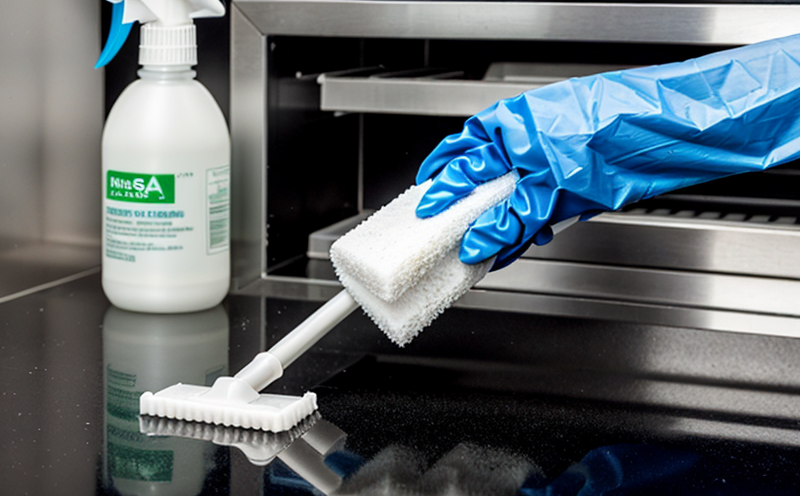ISO 15883 Cleaning Efficacy Testing of Plastic Medical Devices
The ISO 15883 standard provides a robust framework for evaluating the cleaning efficacy of plastic medical devices. This is critical in ensuring that medical equipment remains free from contamination, which can pose significant risks to patients and healthcare providers.
Testing under this standard involves several key steps. Specimens are prepared by simulating real-world use conditions. Contaminants are introduced into the specimen, and then cleaning processes are applied according to the manufacturer's recommendations or standard protocols. After cleaning, the specimens undergo microbiological analysis to quantify residual contamination.
Our laboratory adheres strictly to ISO 15883 guidelines, ensuring that our testing methodology is consistent with international best practices. This includes using appropriate media for microbial growth and employing validated techniques for quantification of microorganisms. We also ensure that all personnel involved are trained in the latest methodologies and adhere to stringent quality control measures.
The importance of this test cannot be overstated, especially given the increasing emphasis on patient safety and healthcare-associated infections (HAIs). By conducting thorough cleaning efficacy tests, we help manufacturers demonstrate compliance with regulatory requirements and enhance trust in their products. This not only protects end-users but also contributes to a safer healthcare environment.
Our facilities are equipped with state-of-the-art equipment capable of handling various types of plastic medical devices. From simple syringes to complex catheters, our experts can provide comprehensive testing services tailored to meet the specific needs of your products. Our goal is to offer you reliable data that supports robust decision-making processes.
For those interested in understanding more about how ISO 15883 impacts their business, we recommend familiarizing themselves with relevant sections of the standard. Additionally, staying updated on industry trends and regulatory changes will be beneficial. Our team is always available to guide you through these aspects should you require further assistance.
- Competitive Advantage: Demonstrating compliance with international standards can set your product apart from competitors by ensuring superior quality and reliability.
- Market Impact: Compliance with ISO 15883 helps build consumer confidence, leading to increased market share and brand loyalty.
Eurolab Advantages
Eurolab offers unparalleled expertise in polymer & plastics testing. Our team of experienced professionals brings decades of industry knowledge to every project, ensuring accurate and reliable results. With extensive experience across multiple sectors including healthcare, we understand the unique challenges faced by medical device manufacturers.
We pride ourselves on our commitment to quality and innovation, which is reflected in our cutting-edge facilities and advanced instrumentation. Our laboratories are fully compliant with international standards, providing a secure environment for conducting rigorous tests. This guarantees that you receive consistent, high-quality data every time.
Moreover, Eurolab prioritizes customer satisfaction by offering flexible service options and personalized support throughout the testing process. Whether you need assistance with specimen preparation or interpretation of results, our dedicated team is here to assist you at each step.
Competitive Advantage and Market Impact
- Enhanced Reputation: Demonstrating compliance with international standards enhances your company's reputation, making it easier to win contracts and secure new business opportunities.
- Informed Decision-Making: Accurate test results enable informed decision-making regarding product development, production processes, and quality control measures. This leads to improved efficiency and reduced costs.
Use Cases and Application Examples
In the healthcare sector, ensuring proper cleaning of medical devices is crucial for preventing infections. By adhering to ISO 15883 standards during manufacturing and quality assurance processes, manufacturers can provide safer products that contribute significantly to better patient outcomes.
- Use Case 1: A hospital procurement team wants to ensure they are buying the safest possible medical devices. By insisting on ISO 15883 certification from suppliers, they can guarantee that these devices meet stringent cleaning efficacy requirements.
- Use Case 2: An R&D engineer working on developing new types of plastic medical devices needs to prove their design's effectiveness in eliminating contaminants. Conducting rigorous tests according to ISO 15883 ensures compliance while providing valuable insights into potential improvements.





